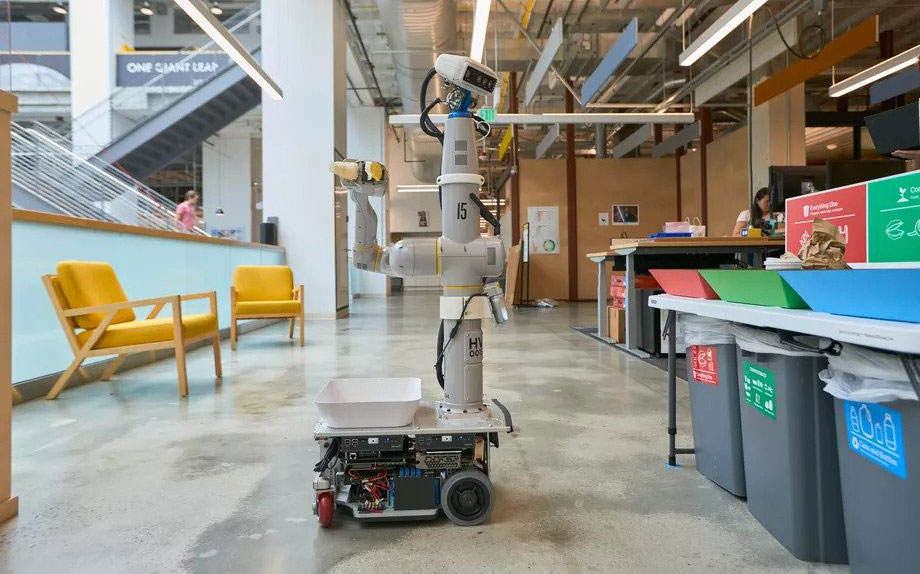Alphabet X’s “Everyday Robot” project is making machines that learn as they go

The news: Alphabet X, the company’s early research and development division, has unveiled the Everyday Robot project, whose aim is to develop a “general-purpose learning robot.” The idea is to equip robots with cameras and complex machine-learning software, letting them observe the world around them and learn from it without needing to be taught every potential situation they may encounter.
For now: The early prototype robots are learning how to sort trash. It sounds mundane, but it’s tough to get robots to identify different types of objects, and then how to grasp them. Alphabet X claims that its robots are currently putting less than 5% of trash in the wrong place, versus an error rate of 20% among the office’s humans.
The big idea: Robots are expensive and confined to performing very specific, specialized tasks. Getting robots that can operate safely and autonomously in messy, complex human environments like homes or offices is one of the biggest challenges in robotics right now.
The concept of combining robotics and AI is something a lot of companies are already working on, to varying degrees of success. The goal of the Everyday Robot project—building a robot that can learn to operate in many different situations—is hugely ambitious, and even if successful, this sort of capability is many years away from being realized.
Sign up here to our daily newsletter The Download to get your dose of the latest must-read news from the world of emerging tech.
Deep Dive
Artificial intelligence
Large language models can do jaw-dropping things. But nobody knows exactly why.
And that's a problem. Figuring it out is one of the biggest scientific puzzles of our time and a crucial step towards controlling more powerful future models.
Google DeepMind’s new generative model makes Super Mario–like games from scratch
Genie learns how to control games by watching hours and hours of video. It could help train next-gen robots too.
What’s next for generative video
OpenAI's Sora has raised the bar for AI moviemaking. Here are four things to bear in mind as we wrap our heads around what's coming.
Stay connected
Get the latest updates from
MIT Technology Review
Discover special offers, top stories, upcoming events, and more.